
Katschberg: The Alpine Gem of Austria
Nestled in the picturesque Austrian Alps, Katschberg is a stunning destination for tourists seeking both adventure and tranquility. Known for its breathtaking landscapes and pristine natural beauty, this alpine region offers a perfect blend of outdoor activities and relaxation, making it an ideal getaway for families, couples, and solo travelers alike. In the winter months, Katschberg transforms into a winter wonderland, attracting ski enthusiasts from all over the world. With well-groomed slopes catering to all skill levels, it’s a paradise for skiing, snowboarding, and other snow sports. The region also boasts numerous ski schools, ensuring that beginners have the opportunity to learn and enjoy the slopes safely. During the summer, Katschberg offers a completely different, yet equally enchanting experience. The verdant meadows, lush forests, and crystal-clear streams provide a serene setting for hiking, mountain biking, and horseback riding. The area is dotted with charming alpine huts and traditional Austrian eateries, where visitors can savor local delicacies while taking in the stunning views. Katschberg is not just about outdoor activities. The region is rich in culture and history, with several nearby towns and villages offering a glimpse into traditional Austrian life. From historic churches to local festivals, there is always something to explore and experience. Whether you’re looking for adventure, relaxation, or a bit of both, Katschberg is a destination that promises unforgettable memories.
Local tips in Katschberg
- Visit during winter for the best skiing experience, as the slopes are well-maintained and cater to all levels.
- In summer, take advantage of the hiking trails that offer stunning views and lead to charming alpine huts.
- Try local Austrian cuisine at traditional eateries for an authentic taste of the region.
- Check the local calendar for festivals and events to experience the rich culture and traditions of the area.
- Book accommodations in advance, especially during peak seasons, to ensure availability and the best rates.
Katschberg: The Alpine Gem of Austria
Nestled in the picturesque Austrian Alps, Katschberg is a stunning destination for tourists seeking both adventure and tranquility. Known for its breathtaking landscapes and pristine natural beauty, this alpine region offers a perfect blend of outdoor activities and relaxation, making it an ideal getaway for families, couples, and solo travelers alike. In the winter months, Katschberg transforms into a winter wonderland, attracting ski enthusiasts from all over the world. With well-groomed slopes catering to all skill levels, it’s a paradise for skiing, snowboarding, and other snow sports. The region also boasts numerous ski schools, ensuring that beginners have the opportunity to learn and enjoy the slopes safely. During the summer, Katschberg offers a completely different, yet equally enchanting experience. The verdant meadows, lush forests, and crystal-clear streams provide a serene setting for hiking, mountain biking, and horseback riding. The area is dotted with charming alpine huts and traditional Austrian eateries, where visitors can savor local delicacies while taking in the stunning views. Katschberg is not just about outdoor activities. The region is rich in culture and history, with several nearby towns and villages offering a glimpse into traditional Austrian life. From historic churches to local festivals, there is always something to explore and experience. Whether you’re looking for adventure, relaxation, or a bit of both, Katschberg is a destination that promises unforgettable memories.
When is the best time to go to Katschberg?
Iconic landmarks you can’t miss
Mauterndorf Castle
Explore Mauterndorf Castle, a historical gem in Austria, where medieval charm meets captivating exhibitions and breathtaking views.
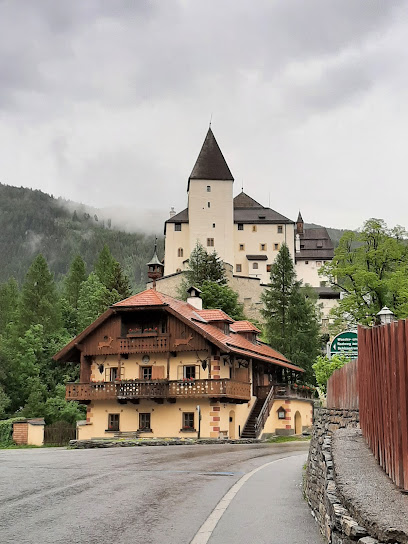
Ski and hiking area Aineck Katschberg
Discover the thrilling slopes and scenic trails of Aineck Katschberg, the ultimate destination for skiing and hiking in the Austrian Alps.
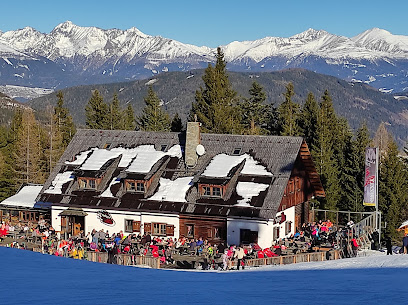
Landal Katschberg
Experience the ultimate alpine getaway at Landal Katschberg, where adventure meets comfort in the heart of the Austrian mountains.
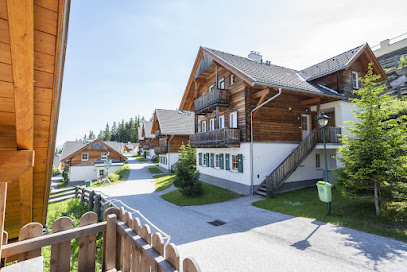
Pritzhütte
Discover the perfect blend of alpine cuisine and stunning mountain views at Pritzhütte in Austria's Katschberg region.
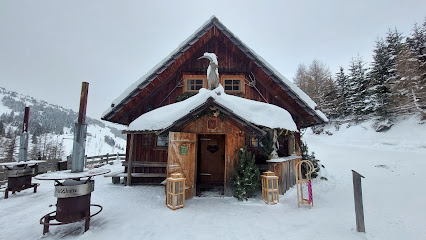
Das KATSCHBERG
Experience the breathtaking beauty and adventure of Das KATSCHBERG, a premier destination in the Austrian Alps for nature lovers and thrill-seekers.
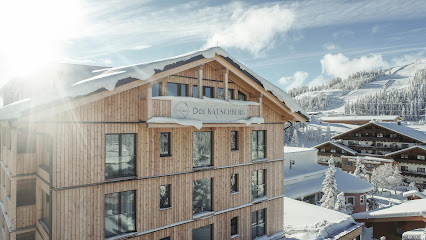
Katschbergbahnen
Discover the breathtaking Katschbergbahnen, a family-friendly mountain cable car paradise in Austria, perfect for skiing and alpine adventures.
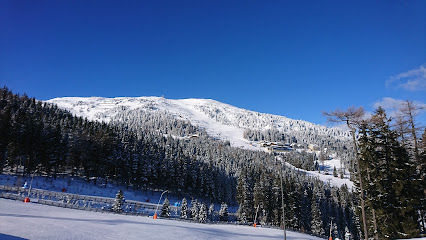
Schloss Moosham und Apartments beim Schloss
Explore the enchanting Schloss Moosham, a historical castle in Austria, offering a perfect blend of rich heritage and modern holiday comforts.
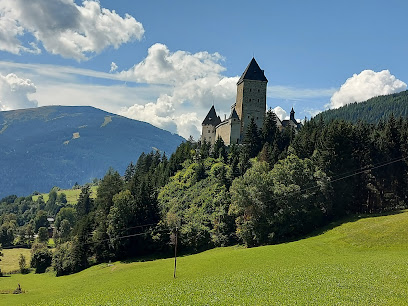
Skischaukel Katschberg-Aineck - Talstation Aineckbahn
Skischaukel Katschberg-Aineck: Your ultimate winter escape in the Austrian Alps, offering skiing adventures for all skill levels amidst stunning alpine scenery.
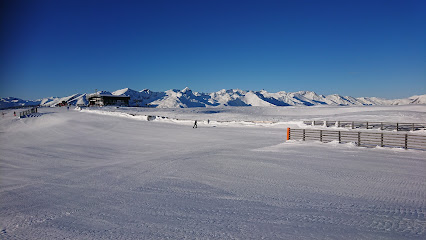
Aineck - Gipfelbahn - Bergstation
Experience the thrill of skiing at Aineck - Gipfelbahn, Austria's premier ski resort, offering stunning views and unforgettable winter adventures.
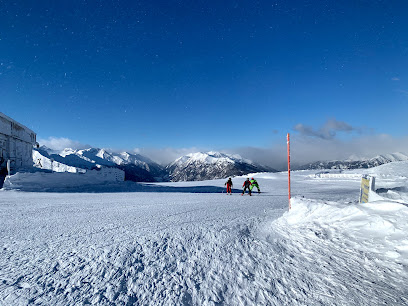
Skigebiet Katschberg - Talstation Tschaneckbahn & Kassa
Experience the thrill of skiing in the breathtaking Katschberg ski resort, where stunning Alpine views and diverse slopes await every adventurer.
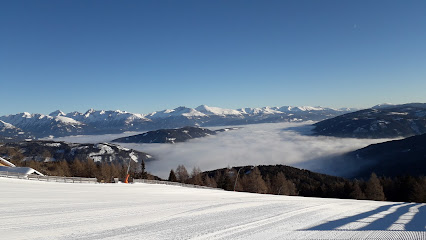
Playground Katschhausen
Discover the joy of family fun at Katschhausen Playground, a delightful amusement center nestled in the breathtaking Austrian Alps.
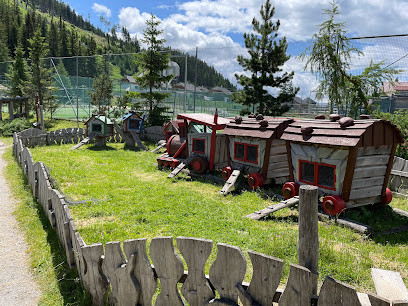
Adventurepark Katschberg
Experience the thrill of adventure at Adventurepark Katschberg, where outdoor fun meets stunning alpine scenery for all ages.
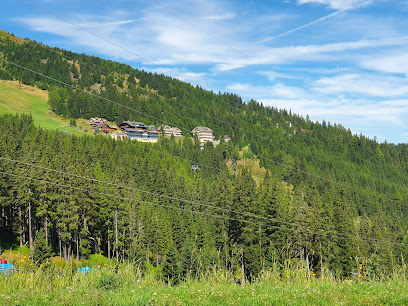
E-Tschu-Tschu-Bahn
Discover the enchanting E-Tschu-Tschu-Bahn in Katschberg, where scenic train rides meet breathtaking alpine landscapes for the perfect family adventure.
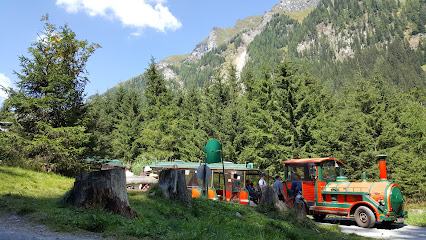
Katschberger Adventweg
Experience the magical charm of Katschberger Adventweg, a stunning alpine wonderland perfect for festive celebrations, hiking, and unforgettable memories.
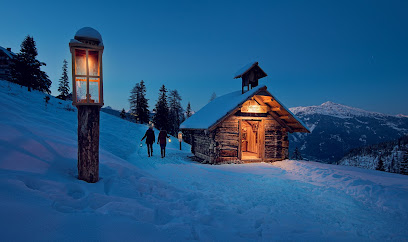
Hüttentraum Katschberg
Discover the enchanting Hüttentraum Katschberg, a perfect alpine retreat for relaxation, hiking, and authentic Austrian hospitality in the heart of the Alps.
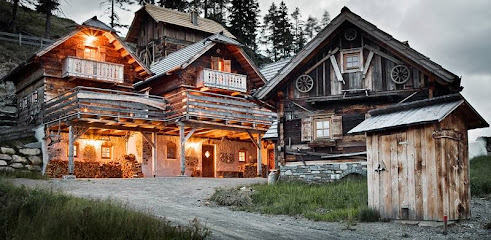
Unmissable attractions to see
Schloss Moosham und Apartments beim Schloss
Explore the majestic Schloss Moosham, a historical castle with rich art collections and stunning landscapes, perfect for culture and history enthusiasts.
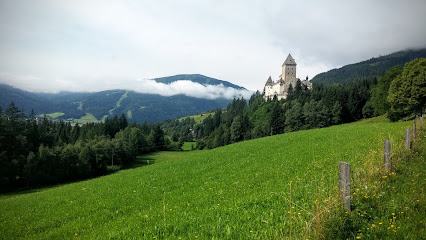
The Outdoorparc Lungau
Experience the thrill of adventure and the beauty of nature at The Outdoorparc Lungau, an amusement park perfect for families and thrill-seekers alike.
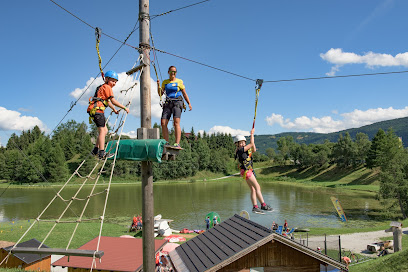
Murinsel
Explore the breathtaking Murinsel Wildlife Refuge in Austria, a serene destination perfect for nature lovers and tranquil escapes.
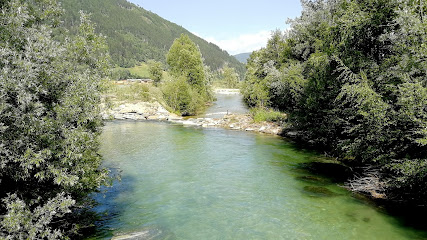
Adventurepark Katschberg
Explore the thrill of climbing, zip-lining, and archery at Adventurepark Katschberg, an ultimate outdoor attraction amidst breathtaking alpine views.
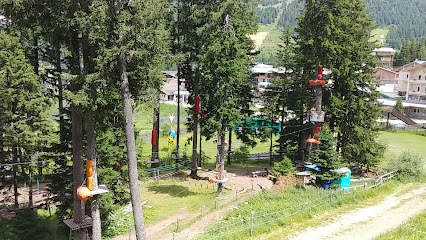
E-Tschu-Tschu-Bahn
Discover the enchanting landscapes of the Austrian Alps on the E-Tschu-Tschu-Bahn, a delightful tourist attraction perfect for families and adventure seekers.
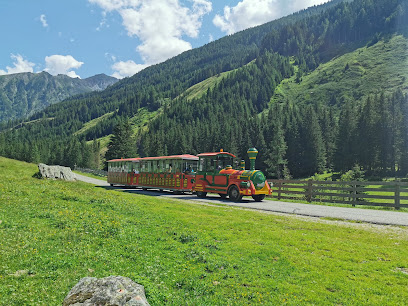
Katschberger Adventweg
Experience the magic of the Katschberger Adventweg, a stunning winter trail filled with festive cheer, breathtaking views, and delightful local treats in the Austrian Alps.
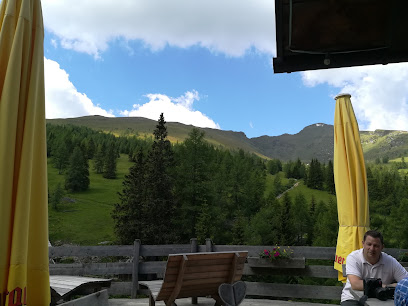
Arsenhaus
Explore the rich history and stunning architecture of Arsenhaus, a must-see historical landmark in the picturesque Hintermuhr region of Austria.
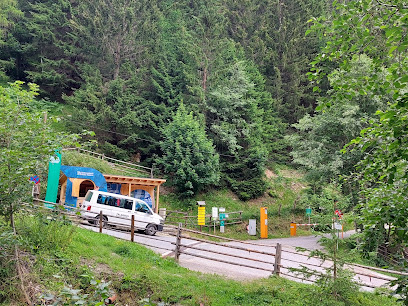
Lungauer Landschaftsmuseum
Explore the Lungauer Landschaftsmuseum, a cultural gem showcasing the rich history and traditions of the Lungau region in a captivating alpine setting.
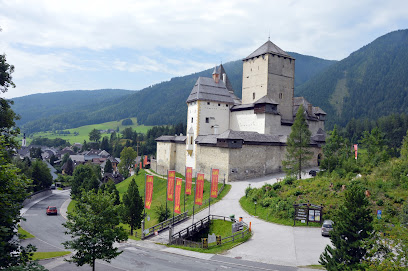
Katschi's GPS-Schatzsuche
Explore the breathtaking landscapes of Katschberg with an interactive GPS treasure hunt, perfect for families and adventurers alike.
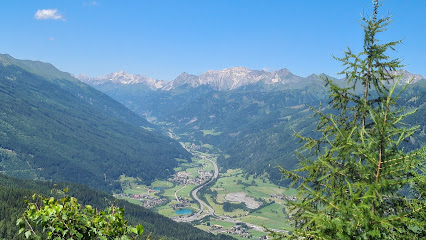
Kofel
Explore the breathtaking hiking trails of Kofel in Rennweg am Katschberg, where stunning views and natural beauty await every adventurer.
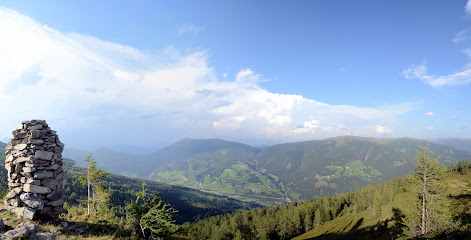
Tunnel-Unterquerung
Experience the Tunnel-Unterquerung, an architectural marvel amidst stunning alpine scenery, perfect for travelers seeking beauty and intrigue.
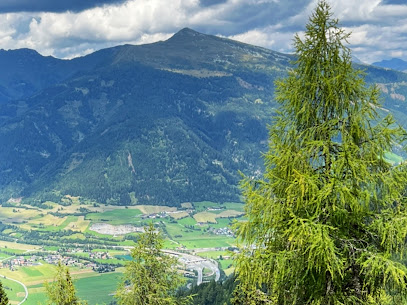
Aufstieg Naturrodelbahn Gamskogelhütte
Discover the excitement of Gamskogelhütte Naturrodelbahn, a premier sledding destination in Katschberghöhe, Austria, perfect for adventure seekers and families.

Wasserblume Rennweg
Discover the serene beauty of Wasserblume Rennweg, an enchanting natural attraction in Austria, perfect for nature lovers and outdoor enthusiasts.
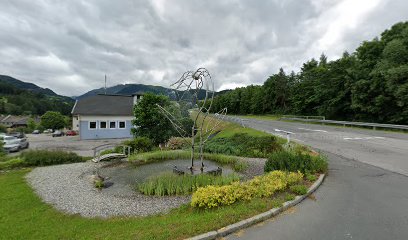
Trinkwasser-Brunnen
Explore the captivating Trinkwasser-Brunnen, a stunning fountain in St. Michael im Lungau that embodies the region's natural beauty and cultural heritage.
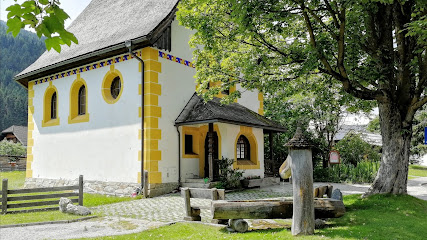
Trink-Brunnen RC Unterweissburg
Explore the serene beauty of Trink-Brunnen RC Unterweissburg, a picturesque fountain reflecting Austria's rich cultural heritage in a charming village.
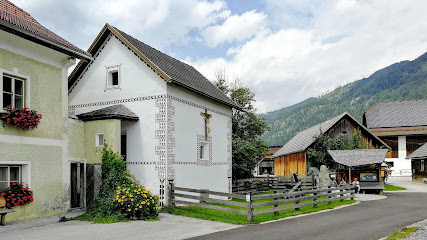
Essential places to dine
Pizzeria Stamperl
Discover authentic Italian pizza at Pizzeria Stamperl in Katschberghöhe – where every slice is made with love amidst stunning Alpine views.
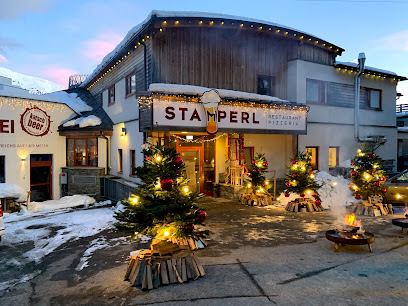
Gamskogelhütte
Experience authentic Austrian cuisine amidst breathtaking alpine views at Gamskogelhütte - your ultimate mountain retreat.
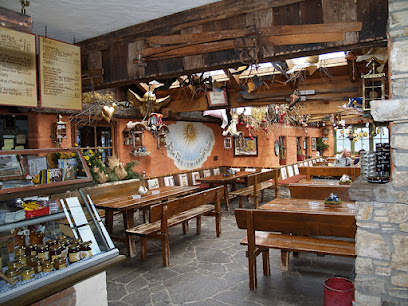
Peterbaueralm
Discover Peterbaueralm: A unique mountain dining experience blending organic flavors with breathtaking alpine views.
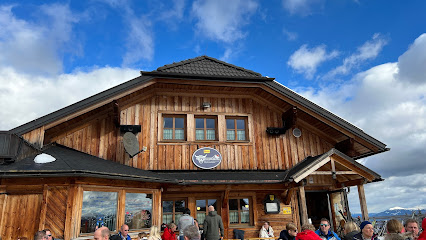
Prodinger's Wirtshaus
Savor traditional Austrian flavors in a warm atmosphere at Prodinger's Wirtshaus in Sankt Michael im Lungau.
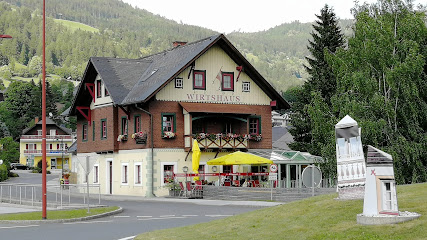
Pizzeria Restaurant Lärchenstadl Katschberg
Experience authentic Italian cuisine amidst breathtaking alpine scenery at Pizzeria Restaurant Lärchenstadl Katschberg.
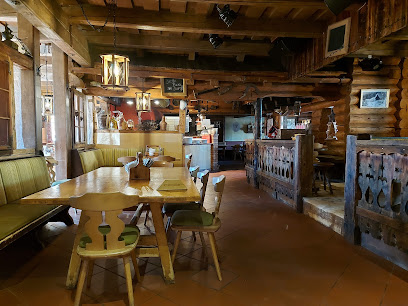
Wilderer Alm
Discover authentic Austrian flavors at Wilderer Alm in Katschberg – where tradition meets breathtaking alpine views.
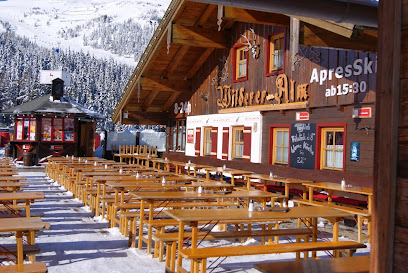
Pritzhütte
Experience authentic Austrian cuisine at Pritzhütte while enjoying breathtaking views and access to spectacular hiking trails.
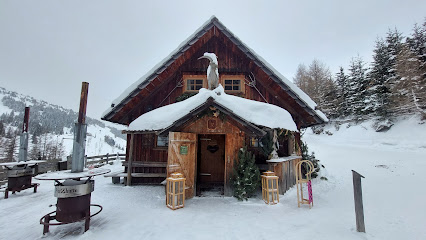
Alpengasthof Bacher
Experience authentic Austrian cuisine and alpine hospitality at Alpengasthof Bacher, your perfect retreat in Sankt Michael im Lungau.
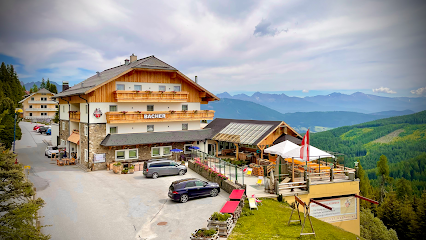
Kößlbacheralm
Discover Kößlbacheralm: A delightful mountain restaurant offering authentic Austrian cuisine amidst stunning alpine scenery.
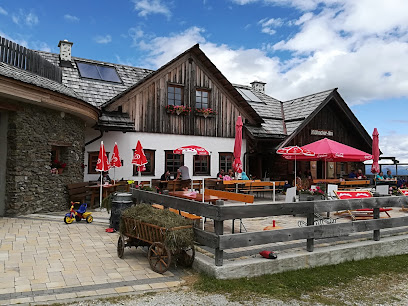
Almwirtshaus Ainkehr
Discover the rich flavors of Austria at Almwirtshaus Ainkehr, where traditional cuisine meets stunning alpine scenery.
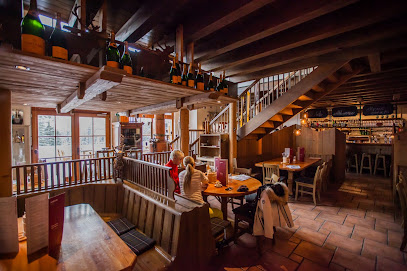
Gasthof Post
Experience authentic Austrian hospitality at Gasthof Post in Rennweg am Katschberg – where delicious cuisine meets cozy accommodations.
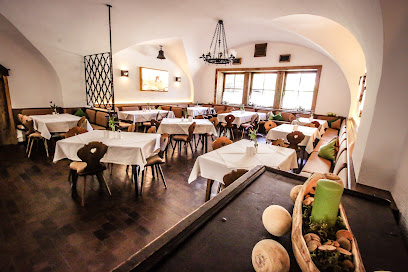
Gipfelrestaurant Adlerhorst
Experience breathtaking views and delightful Alpine cuisine at Gipfelrestaurant Adlerhorst in Katschberghöhe.
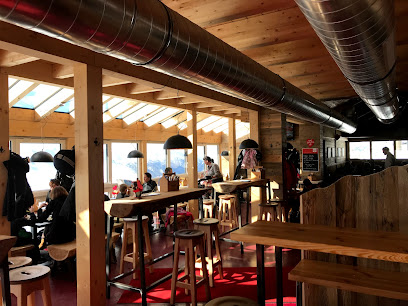
Zum Platzer
Discover Zum Platzer: A cozy restaurant and inn offering authentic Austrian cuisine amidst breathtaking alpine scenery in St. Peter.
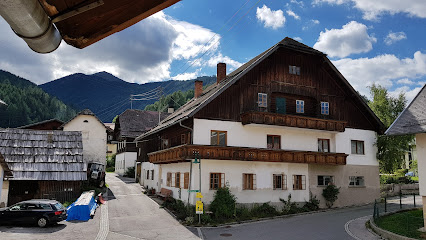
Schlögelberger Restaurant / Berggasthof
Discover culinary excellence at Schlögelberger Restaurant in St. Margarethen im Lungau, where breathtaking views meet exquisite Austrian cuisine.
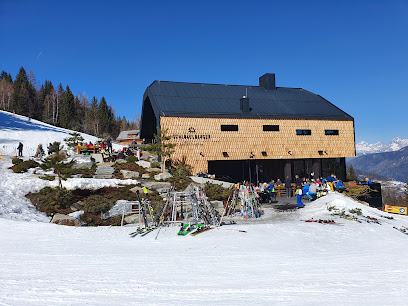
Almkessel Katschberg
Discover culinary delights at Almkessel Katschberg - where grilled perfection meets breathtaking alpine views.
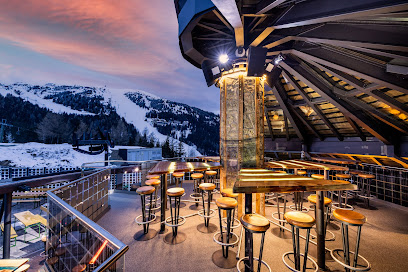
Markets, malls and hidden boutiques
HOFER
Explore HOFER in St. Michael im Lungau for quality products and unbeatable prices in a friendly supermarket setting.

BILLA
Explore local flavors and convenience at BILLA supermarket in St. Michael im Lungau, your essential shopping stop for quality groceries.
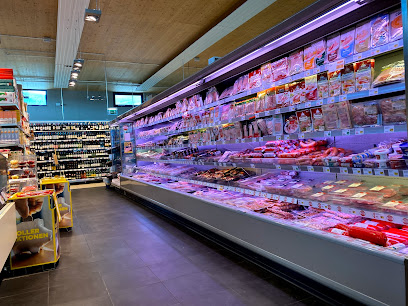
Erwin Resch Ski & Sportzentrum
Experience the ultimate ski adventure at Erwin Resch Ski & Sportzentrum, your one-stop destination for rentals, lessons, and après-ski fun in the heart of the Alps.
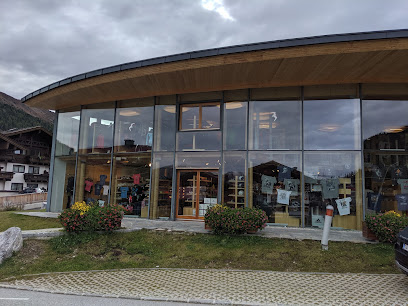
Bayerwald Jagd
Explore Bayerwald Jagd, a premier hunting store in St. Michael im Lungau, for top-quality gear and expert advice on your outdoor adventures.
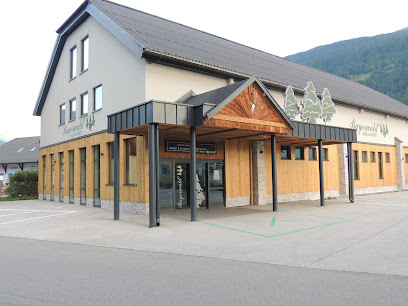
Sportfex GmbH
Explore the great outdoors with top-quality gear from Sportfex GmbH in St. Michael im Lungau, your one-stop shop for sports and outdoor adventures.
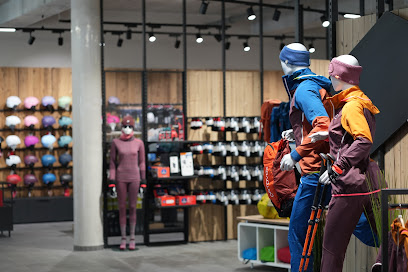
ADEG Schiefer
Experience the best of local flavors and convenience at ADEG Schiefer, your go-to supermarket in Rennweg am Katschberg.

Kaufhaus Lärchenhof
Explore the heart of Katschberg at Kaufhaus Lärchenhof, your ultimate supermarket for all Alpine adventures, stocking everything from fresh produce to ski essentials.
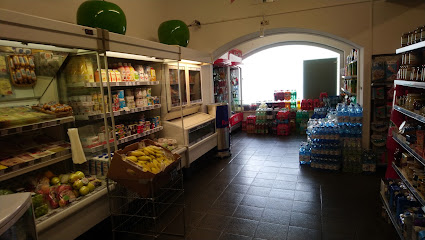
deko.Creative4u Melanie Moser
Discover unique gifts and personalized souvenirs at deko.Creative4u in St. Michael im Lungau, your destination for local craftsmanship.
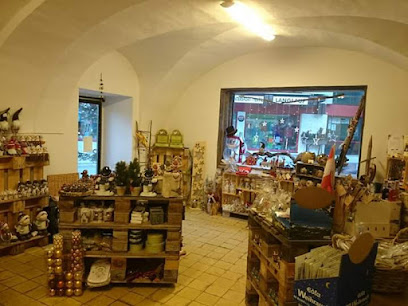
Ski- & Sportschule Gottfried Krabath GmbH
Experience thrilling winter sports at Ski- & Sportschule Gottfried Krabath, your ultimate gateway to the slopes in Katschberghöhe.
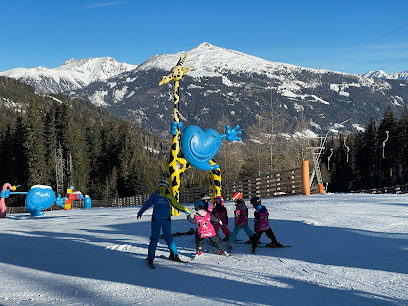
TAKKO FASHION St. Michael im Lungau
Explore stylish clothing for the whole family at TAKKO FASHION in St. Michael im Lungau, where quality meets affordability across a diverse range of apparel.
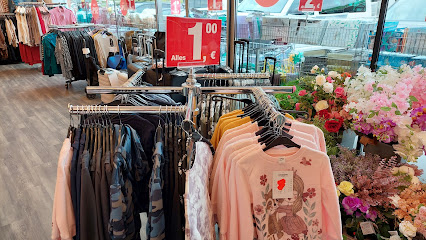
BIPA
Explore a world of beauty at BIPA in St. Michael im Lungau – your ultimate cosmetics destination for quality products and expert advice.
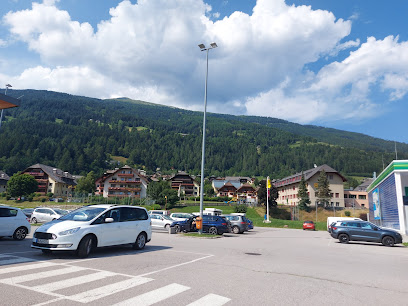
Sport 2000 Friedrich
Explore the snowy slopes of Katschberg with top-quality ski rentals and sportswear from Sport 2000 Friedrich, your trusted sporting goods store.

Sport Rest Outlet St. Michael
Explore the best of outdoor adventure gear at Sport Rest Outlet St. Michael, where style meets functionality for every explorer.
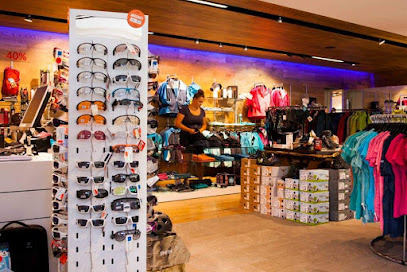
Hansimilch ab Hof - Schmankerlschrank
Experience the finest artisanal cheeses of Austria at Hansimilch ab Hof - Schmankerlschrank, a must-visit cheese shop in Rennweg am Katschberg.
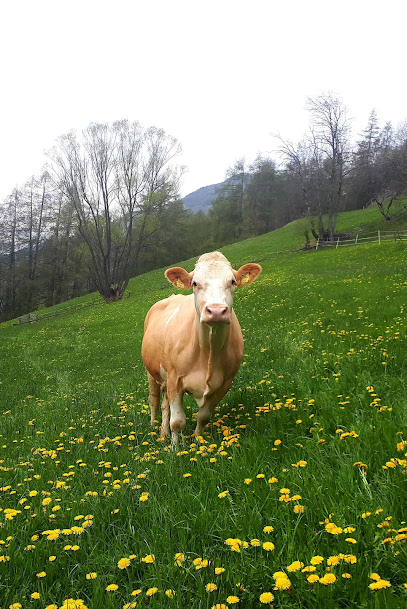
Alfred Peitler
Discover the rich musical heritage of Rennweg am Katschberg at Alfred Peitler, a premier musical instrument store offering a diverse selection for all music lovers.
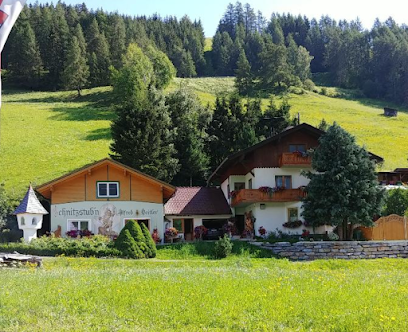
Essential bars & hidden hideouts
Pizzeria Stamperl
Experience the best of Italian cuisine in Katschberghöhe at Pizzeria Stamperl, where every pizza is a celebration of flavor and tradition.
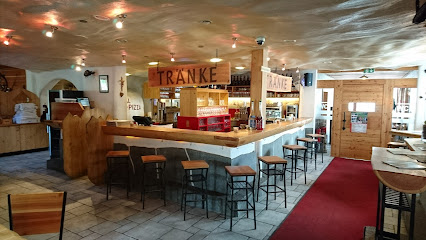
Gamskogelhütte
Experience alpine dining at Gamskogelhütte, where breathtaking views meet delicious local cuisine in the heart of the Katschberg mountains.
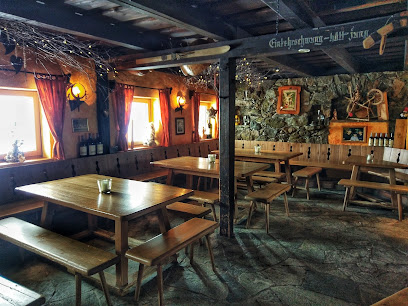
Wilderer Alm
Experience the heart of Austrian hospitality at Wilderer Alm, where traditional cuisine meets stunning mountain vistas.
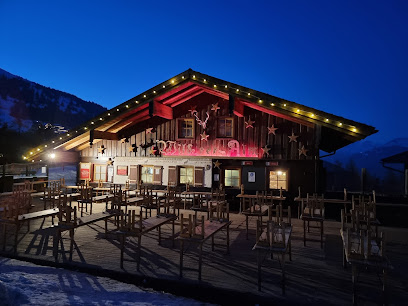
Pritzhütte
Experience the best of Austrian cuisine at Pritzhütte, a scenic restaurant perfect for hikers and food lovers in the stunning Lungau region.
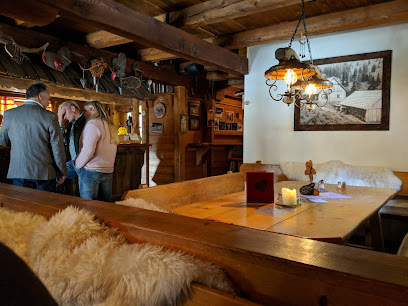
Alpengasthof Bacher
Discover the charm of Alpengasthof Bacher, where exquisite alpine dining meets cozy accommodations amidst breathtaking mountain scenery.
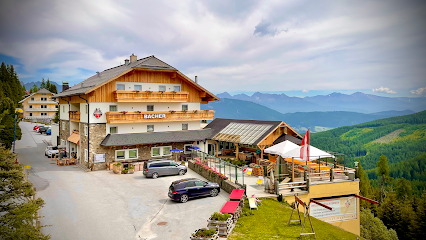
Almwirtshaus Ainkehr
Experience authentic Austrian cuisine at Almwirtshaus Ainkehr, a fine dining restaurant in Katschberghöhe, known for its fondue and steak specialties.
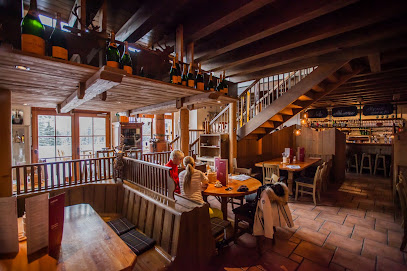
Gasthof Post
Discover the charm of Gasthof Post in Rennweg am Katschberg, where local cuisine meets warm hospitality in a stunning alpine setting.
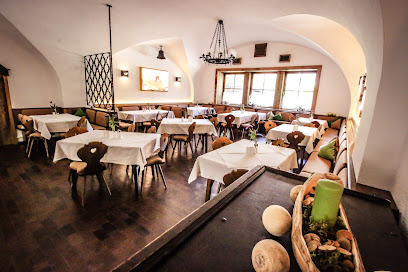
Gipfelrestaurant Adlerhorst
Experience the breathtaking views and delicious local cuisine at Gipfelrestaurant Adlerhorst, a must-visit in Katschberghöhe.
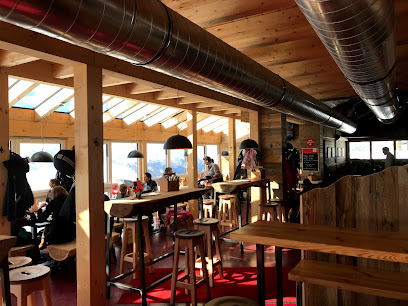
Aparthotel Das Alpenhaus Katschberg
Discover the enchanting Alpenhaus Katschberg, your ultimate alpine escape, blending comfort, adventure, and delicious cuisine amidst stunning mountain vistas.
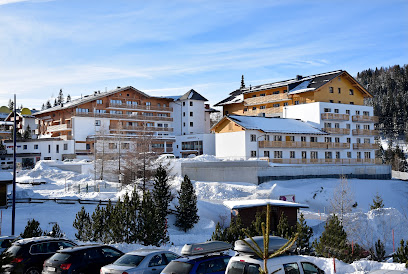
Erwin Resch Ski & Sportzentrum
Discover the ultimate ski experience at Erwin Resch Ski & Sportzentrum, where adventure meets expert guidance in the heart of the Austrian Alps.
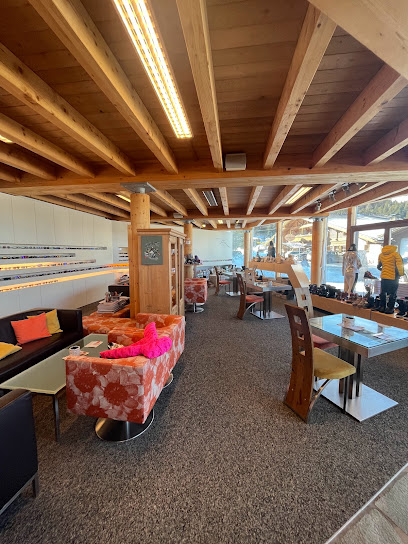
Almkessel Katschberg
Experience the best of Austrian grill cuisine at Almkessel Katschberg, surrounded by breathtaking alpine vistas in St. Michael im Lungau.
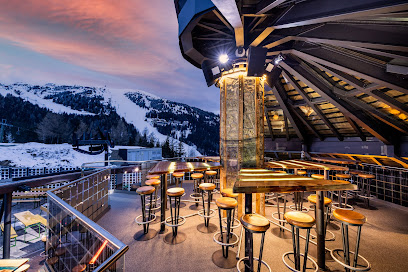
Assenbauerhütte
Discover the authentic flavors of Austria at Assenbauerhütte, a cozy restaurant surrounded by breathtaking mountain views.
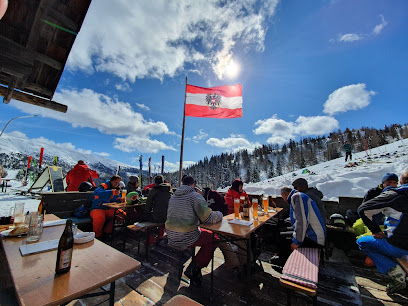
Tatort Tamsweg Live Musik Pub
Discover Tatort Tamsweg Live Musik Pub - where live music meets a cozy bar atmosphere in the heart of Tamsweg.
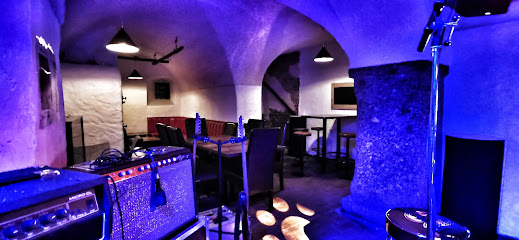
Turm Bar Vinothek
Discover the charm of Turm Bar Vinothek in Katschberghöhe, where exquisite wines and a cozy atmosphere create the perfect retreat for travelers.
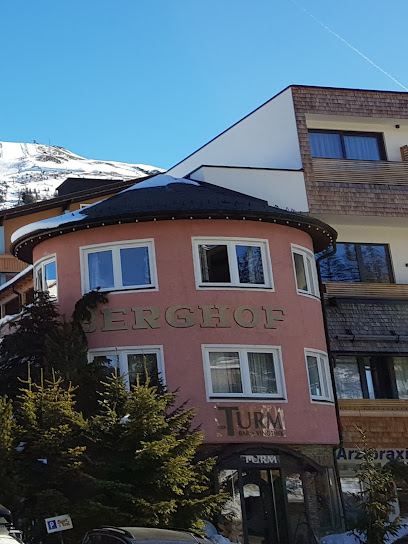
Local Phrases about Katschberg
-
- HelloServus
[ser-voos] - GoodbyeAuf Wiedersehen
[owf vee-der-zay-en] - YesJa
[yah] - NoNein
[nine] - Please/You're welcomeBitte
[bit-te] - Thank youDanke
[dahn-keh] - Excuse me/SorryEntschuldigung
[ent-shool-dee-gung] - How are you?Wie geht es dir?
[vee gayt es deer] - Fine. And you?Gut. Und dir?
[goot oond deer] - Do you speak English?Sprechen Sie Englisch?
[shpre-khen zee eng-leesh] - I don't understandIch verstehe nicht
[ikh fer-shtay-he nikht]
- HelloServus
-
- I'd like to see the menu, pleaseIch möchte die Speisekarte sehen, bitte
[ikh merkh-te dee shpi-ze-kahr-teh zay-en, bit-teh] - I don't eat meatIch esse kein Fleisch
[ikh es-se kine fli-sh] - Cheers!Prost!
[prohst] - I would like to pay, pleaseIch würde gerne bezahlen, bitte
[ikh vur-deh gehr-neh be-tsal-en, bit-teh]
- I'd like to see the menu, pleaseIch möchte die Speisekarte sehen, bitte
-
- Help!Hilfe!
[hil-feh] - Go away!Geh weg!
[geh vehg] - Call the Police!Rufen Sie die Polizei!
[roo-fen zee dee po-lee-tsy] - Call a doctor!Rufen Sie einen Arzt!
[roo-fen zee i-nen aarts] - I'm lostIch habe mich verirrt
[ikh hah-beh meekh feh-rirt] - I'm illIch bin krank
[ikh been krank]
- Help!Hilfe!
-
- I'd like to buy...Ich möchte kaufen...
[ikh merkh-te kow-fen] - I'm just lookingIch schaue nur
[ikh shau-eh noor] - How much is it?Wie viel kostet es?
[vee feel koh-stet es] - That's too expensiveDas ist zu teuer
[dahs ist tsoo toy-er] - Can you lower the price?Können Sie den Preis senken?
[ker-nen zee den prees sen-ken]
- I'd like to buy...Ich möchte kaufen...
-
- What time is it?Wie spät ist es?
[vee shpeht ist es] - It's one o'clockEs ist ein Uhr
[es ist iyn oor] - Half past (10)Halb elf
[halb elf] - MorningMorgen
[mohr-gen] - AfternoonNachmittag
[nahk-mit-tahk] - EveningAbend
[ah-bent] - YesterdayGestern
[ges-tern] - TodayHeute
[hoi-teh] - TomorrowMorgen
[mohr-gen] - 1Eins
[ines] - 2Zwei
[tsvai] - 3Drei
[dry] - 4Vier
[feer] - 5Fünf
[fuhnf] - 6Sechs
[zeks] - 7Sieben
[zee-ben] - 8Acht
[ahkt] - 9Neun
[noyn] - 10Zehn
[tsayn]
- What time is it?Wie spät ist es?
-
- Where's a/the...?Wo ist ein/der...?
[voh ist iyn/dehr] - What's the address?Wie lautet die Adresse?
[vee lou-tet dee ah-dreh-suh] - Can you show me (on the map)?Können Sie es mir zeigen (auf der Karte)?
[ker-nen zee es meer tsee-gen (owf dehr kahr-teh)] - When's the next (bus)?Wann kommt der nächste (Bus)?
[vahn kohmt dehr nekh-steh (boos)] - A ticket (to ....)Eine Fahrkarte (nach ....)
[i-ne fahr-kahr-teh (nahkh ....)]
- Where's a/the...?Wo ist ein/der...?
History of Katschberg
-
Katschberg, nestled in the Eastern Alps of Austria, has a history that dates back to prehistoric times. Archaeological findings suggest that early settlers inhabited the region as far back as the Bronze Age. These early inhabitants were primarily engaged in agriculture and livestock farming, using the fertile valleys and rich natural resources to sustain their communities.
-
During the medieval period, Katschberg emerged as a significant waypoint along the ancient trade routes that connected Italy with the rest of Central Europe. The strategic location of Katschberg Pass made it an essential crossing point for merchants and traders transporting goods such as salt, wine, and textiles. The establishment of inns and waystations in the area catered to these travelers, fostering economic growth and cultural exchange.
-
In the late Middle Ages, Katschberg became a notable site for religious pilgrimages. The construction of chapels and shrines in the region drew pilgrims from far and wide, seeking spiritual solace and divine intervention. The most famous of these is the Church of St. Peter, built in the 14th century, which continues to be a place of worship and historical interest.
-
Under the Habsburg rule, Katschberg saw significant infrastructural development. The construction of improved roadways and bridges facilitated better connectivity and trade. The Habsburgs also promoted the region's natural beauty and health benefits, leading to the establishment of early health resorts. This period marked the beginning of Katschberg as a destination for leisure and wellness.
-
World War II brought significant challenges to the Katschberg region. The strategic location of the Katschberg Pass meant it was of military interest, leading to fortifications and military presence. Post-war, the area faced economic and social rebuilding. The resilience of the local population and the natural allure of the region helped Katschberg to recover and eventually thrive as a tourist destination.
-
The latter half of the 20th century saw Katschberg transform into a modern tourist destination. The development of ski resorts and related infrastructure attracted winter sports enthusiasts from across Europe and beyond. Investments in ski lifts, hotels, and recreational facilities have turned Katschberg into a year-round tourist hub, offering activities ranging from skiing and snowboarding to hiking and mountain biking.
-
Katschberg is rich in cultural traditions and hosts numerous festivals throughout the year. The annual 'Katschberg Adventweg' is a highlight, featuring traditional Christmas markets, music, and local crafts. Other notable events include the 'Almabtrieb,' where cattle are adorned and paraded down from the alpine pastures, celebrating the end of the grazing season. These festivals reflect the region's deep cultural heritage and community spirit.
Katschberg Essentials
-
Katschberg is located in the Austrian Alps, straddling the border between the states of Carinthia and Salzburg. The nearest international airports are Salzburg Airport (SZG) and Klagenfurt Airport (KLU), both approximately 120 kilometers away. From these airports, you can rent a car or take a train to Spittal-Millstättersee or Bischofshofen, followed by a bus or taxi to Katschberg. Additionally, shuttle services are available during the ski season, providing direct transfers from these airports to Katschberg.
-
Katschberg is a compact area best explored on foot, particularly within the resort areas. For longer journeys, local buses connect Katschberg with nearby towns such as St. Michael and Rennweg. Taxis are available but can be expensive. Renting a car provides the most flexibility, especially if you plan to explore the surrounding regions. During the winter season, ski buses operate frequently, providing convenient transportation to various ski lifts and slopes.
-
The official currency in Austria is the Euro (EUR). Credit and debit cards are widely accepted in hotels, restaurants, and shops in Katschberg. However, it is advisable to carry some cash, especially for smaller establishments, mountain huts, and local markets. ATMs are available in the resort area, and it is easy to withdraw cash as needed.
-
Katschberg is generally a very safe destination for tourists. Crime rates are low, and there are no specific areas known for targeting tourists. However, it is always prudent to take standard precautions such as not leaving valuables unattended and being aware of your surroundings, especially in crowded areas. During winter, be mindful of weather conditions and potential avalanche risks when skiing or hiking.
-
In case of emergency, dial 112 for immediate assistance, which connects you to police, fire, and medical services. Katschberg has a well-equipped medical center with facilities to handle skiing-related injuries and other common ailments. It is recommended to have travel insurance that covers medical emergencies. Pharmacies are available in the nearby towns of St. Michael and Rennweg for minor health issues and over-the-counter medications.
-
Fashion: Do wear appropriate outdoor clothing, especially during the winter season. Layering is key due to variable weather conditions. Avoid overly casual attire in fine dining restaurants. Religion: Do respect local customs and traditions. Austria is predominantly Catholic, so be mindful when visiting churches. Public Transport: Do have your ticket ready before boarding buses or ski lifts. Don’t try to ride without a valid ticket, as fines are common. Greetings: Do greet locals with a friendly 'Grüß Gott' or 'Hallo'. A handshake is a common form of greeting. Eating & Drinking: Do try local Austrian specialties such as Wiener Schnitzel and Apfelstrudel. Don’t forget to tip in restaurants; rounding up the bill or leaving about 5-10% is customary.
-
To experience Katschberg like a local, consider participating in seasonal activities such as the Advent market during Christmas time or the Almsommer festival in summer, celebrating alpine culture. Visit local farms and dairies to sample fresh, locally-produced cheese and dairy products. Engage with locals at mountain huts (Almhütten) for an authentic experience and to hear fascinating stories about the region's history and traditions. For a unique adventure, try a horse-drawn sleigh ride through the picturesque winter landscape.
Trending Landmarks in Katschberg
-
Mauterndorf Castle
-
Ski and hiking area Aineck Katschberg
-
Landal Katschberg
-
Pritzhütte
-
Das KATSCHBERG
-
Katschbergbahnen
-
Schloss Moosham und Apartments beim Schloss
-
Skischaukel Katschberg-Aineck - Talstation Aineckbahn
-
Aineck - Gipfelbahn - Bergstation
-
Skigebiet Katschberg - Talstation Tschaneckbahn & Kassa
-
Playground Katschhausen
-
Adventurepark Katschberg
-
E-Tschu-Tschu-Bahn
-
Katschberger Adventweg
-
Hüttentraum Katschberg
Nearby Cities to Katschberg
-
Things To Do in Hallstatt
-
Things To Do in Kranjska Gora
-
Things To Do in Zell am See
-
Things To Do in Klagenfurt
-
Things To Do in Bled
-
Things To Do in Bohinj
-
Things To Do in Salzburg
-
Things To Do in Kitzbühel
-
Things To Do in Škofja Loka
-
Things To Do in Kamnik
-
Things To Do in Nova Gorica
-
Things To Do in Ljubljana
-
Things To Do in Velenje
-
Things To Do in Graz
-
Things To Do in Linz







